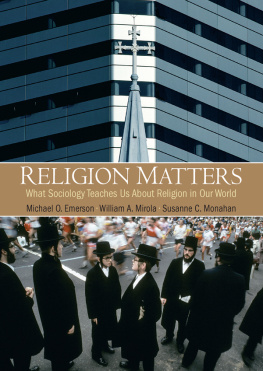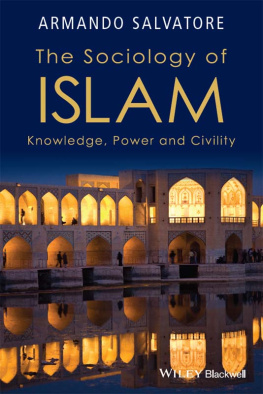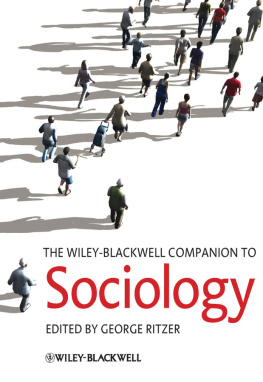George N. Lundskow - The sociology of religion : a substantive and transdisciplinary approach
Here you can read online George N. Lundskow - The sociology of religion : a substantive and transdisciplinary approach full text of the book (entire story) in english for free. Download pdf and epub, get meaning, cover and reviews about this ebook. year: 2008, publisher: Pine Forge., genre: Religion. Description of the work, (preface) as well as reviews are available. Best literature library LitArk.com created for fans of good reading and offers a wide selection of genres:
Romance novel
Science fiction
Adventure
Detective
Science
History
Home and family
Prose
Art
Politics
Computer
Non-fiction
Religion
Business
Children
Humor
Choose a favorite category and find really read worthwhile books. Enjoy immersion in the world of imagination, feel the emotions of the characters or learn something new for yourself, make an fascinating discovery.

- Book:The sociology of religion : a substantive and transdisciplinary approach
- Author:
- Publisher:Pine Forge.
- Genre:
- Year:2008
- Rating:5 / 5
- Favourites:Add to favourites
- Your mark:
- 100
- 1
- 2
- 3
- 4
- 5
The sociology of religion : a substantive and transdisciplinary approach: summary, description and annotation
We offer to read an annotation, description, summary or preface (depends on what the author of the book "The sociology of religion : a substantive and transdisciplinary approach" wrote himself). If you haven't found the necessary information about the book — write in the comments, we will try to find it.
The sociology of religion : a substantive and transdisciplinary approach — read online for free the complete book (whole text) full work
Below is the text of the book, divided by pages. System saving the place of the last page read, allows you to conveniently read the book "The sociology of religion : a substantive and transdisciplinary approach" online for free, without having to search again every time where you left off. Put a bookmark, and you can go to the page where you finished reading at any time.
Font size:
Interval:
Bookmark:

 | Pine Forge Press A SAGE Publications Company 2455 Teller Road Thousand Oaks, California 91320 E-mail: SAGE Publications Ltd. 1 Olivers Yard 55 City Road London EC1Y 1SP United Kingdom SAGE Publications India Pvt. Ltd. B 1/I 1 Mohan Cooperative Industrial Area Mathura Road, New Delhi 110 044 India SAGE Publications Asia-Pacific Pte. Ltd. 33 Pekin Street #02-01 Far East Square Singapore 048763 |
p. cm.
Acquisitions Editor: | Benjamin Penner |
Editorial Assistant: | Nancy Scrofano |
Production Editor: | Karen Wiley |
Copy Editor: | Teresa Herlinger |
Proofreader: | Jenifer Kooiman |
Typesetter: | C&M Digitals (P) Ltd. |
Indexer: | Sheila Bodell |
Cover Designer: | Gail Buschman |
Marketing Manager: | Jennifer Reed Banando |
Grand Rapids, Michigan
Font size:
Interval:
Bookmark:
Similar books «The sociology of religion : a substantive and transdisciplinary approach»
Look at similar books to The sociology of religion : a substantive and transdisciplinary approach. We have selected literature similar in name and meaning in the hope of providing readers with more options to find new, interesting, not yet read works.
Discussion, reviews of the book The sociology of religion : a substantive and transdisciplinary approach and just readers' own opinions. Leave your comments, write what you think about the work, its meaning or the main characters. Specify what exactly you liked and what you didn't like, and why you think so.



